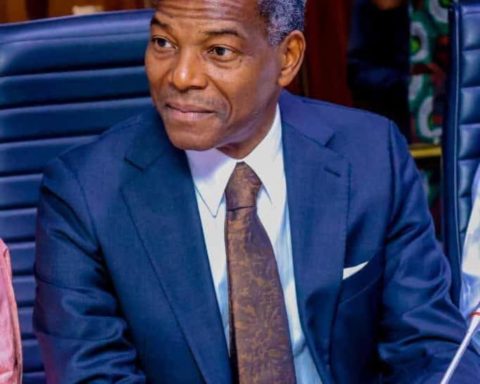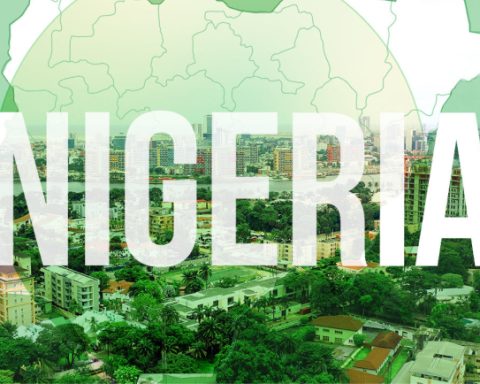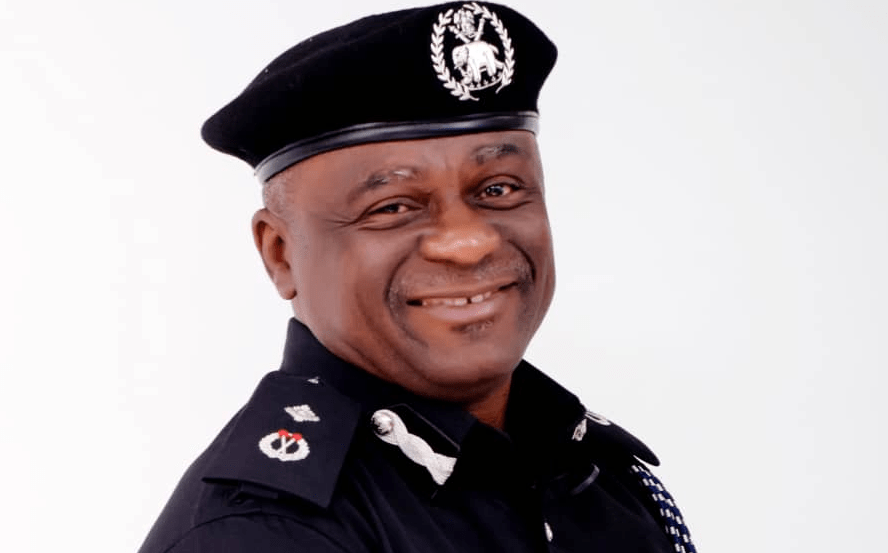Public Essay by Oseloka H. Obaze
Join our WhatsApp Channel
Nigeria must not die for several reasons. First, it has not fulfilled its manifest destiny for Nigerians and for Africans. Second, as an African proverb cautions, “When vultures surround you, try not to die.” Nigeria is ruled and surrounded by vulture-like reprobate politicians. She’s ailing. And there are sentinels at her door. Historically, freedom can die. Democracy can die. Nations can also die. All these tend to happen through a gradual process of weakening of institutions, perversive impunity, lack of accountability, and disrespect for the rule of law. Because these variables are prevalent in Nigeria’s political ecosystem, the nation is on life support. Yet, Nigeria must not disintegrate; she must not die. We must save Nigeria.
As a traditional aphorism contends, “if a sacrifice of blood and flesh is made and carnivorous vultures don’t gather at the site, then something untoward has happened in the land of the dead.” The site of any carcass is the vulture’s habitual coven. Three indicators are pertinent: a prospective meal fest, the gathering of the habitual consumers, the vultures; and then, death. A parallel in life is an ailing nation like Nigeria, with massive resources to loot- oil, solid minerals, money, pricey land – and a gathering of the politicos that feast off the national coffers
Our national predators are not content with feasting on the remains of the day. Instead, by exploiting a badly structured federation, they contrive how to fritter away or finagle the national wealth, via ways and means, and then divvy up the loot, using executive and legislative fiats To them, Nigeria’s only viable industry is politics. So, as misgovernance becomes the norm, the malfeasance of padded budgets or split contracts is no longer an aberration. Other prebendal ancillaries also persist. If the treasury is empty, then print more money. If you can’t, then borrow and loot the borrowed funds.
At a time when the nation is in dire straits, some Nigerian politicians are predisposed to being vultures. The ruling APC has, in every sense, become akin to the vulture’s coven. It is now customary for it to honour unprecedented defections. The defectors are by their admission, intention, and conduct, akin to a committee of vultures. In both manner and conduct, they are discernibly eager to get some advantage from other people’s difficulties or weaknesses and from the plight of Nigerians. In such power grab and play, there is no scintilla of empathy, a tilt towards common cause or deference to national interest. The defectors, like vultures, easily transmute to a venue, volt, or wake, depending on the circumstance.
These presumed elected Nigerian leaders ceaselessly voice commendation to a stolen and failed mandate, having lost their voice of truth and reason to greed and gluttony. They even sing “on your mandate we stand” in praise of profligacy and moral turpitude. They call themselves leaders and purveyors of “renewed hope.” And with divided hearts, they babble vanities and inanities, one to the other as they preach and promise faux hope. So they foist blind hope without dividends. Their dissolute steadfastness only reflects their reward for success in grovelling and blinkered loyalty.
The commissioning of public projects ought to be a noble event; an attestation to great public sector accomplishments and promises fulfilled. But the unfolding culture, now perpetrated daily, is to commission fractions of projects. This is so, notwithstanding the enormous funds dispensed and expended for such commissioning. No one thinks of such frivolous expenses in the context of cutting costs of governance.
Nigerian are increasingly witnessing how our politicians feed on people’s downfalls, misfortunes, and weaknesses. They feed off their constituents by salting away targeted funds meant for constituency projects. Indeed, the constituency project is itself a governance misnomer. The job description of legislators does not include “contract execution”; and “legislative oversight” does not by any stretch of imagination translate to “contract project supervision.”” But in our vulture culture, illegalities and the indefensible can be rationalized.
Elected officials are supposed to attract constituency projects, not allocate and supervise them. But Nigeria happens to Nigerians in unimaginable forms. It’s most ironic that most elected officials, after failing to deliver on their mandates, after robbing their people blind, vouchsafe abiding loyalty to the ruling party by decamping and seeking shelter in that realm. Their attraction is not sustainable public service, but anticipation of partaking in divvying up the national booty, without let or hindrance.
That Nigeria is a crime scene is not hyperbole, if it ever was. Such assessment is beyond the figurative. Nigeria, a country built on hope and pride, the strength of the fabric of her of diversity has been gutted badly. Not only has the vultures stolen her wealth, but they have conspired to steal her conscience. Her unity and values have also been eroded by bigotry and incessant betrayals by the national leadership elite.
Nigeria’s vulture culture grows continually at the expense of the rule of law and spiralling rise of impunity without consequences. When Nigerians and opposition leaders now refer to Nigeria as a crime scene, it is not demarketing the nation. It is a palpable and discernible reality based on happenings in Nigeria’s official realm and beyond. Meanwhile, two sets of clear and present danger confront Nigeria; officious impunity and populace resignation. Both are lethal and fatal to patriotism, nation building, and the upholding of the rule of law.
Recently, a friend shared with me an essay where Dr Nnanke Ufere documented expansive impunity arising from the prevailing leadership hubris and what he referred to as “26 most egregious examples of pattern;” and “disturbing instances where Tinubu got away with breaking the law, ignoring it, or twisting it to his advantage, and where those meant to hold him accountable chose silence, complicity, or active collaboration. Together, they form a portrait not just of a man but of a captured state that bends for power, not principles.”
Incidentally, the subsisting State capture and cancel culture are not factors of shock and sudden violence; rather it’s the outcome of patient vulture-like predators who understands fully, the vulnerability of their prey and exploits it to the hilt. If votes can’t be won or bought; then, rig it or grab it. All these are done against the background of promises of “renewed hope.” In reality, however, the APC as a party and government represents in every sense an existential threat to the survival of corporate Nigeria.
Renewed hope remains a slogan instead of a governance strand or standard. The mantra and its purveyors fail to meet the essence of statesmanship. As averred by historian Charles A. Beard, statesmen are those “who divines the long future, foresees the place of his class and nation in it, labors intelligently to prepare their countrymen for their fate, combines courage with discretion, takes risks, exercises caution when it is necessary, and goes off the stage with a reasonable degree of respectability.”
So here is the upshot of Nigeria’s dissembling governance quandary. In our present state of inertia, the toxic relationship between Nigerian leaders and the population can easily result in tragedy. The evidence abound. As Walter Moulton averred, “bad governance is more risky than the woes of civil war.” In war, even the weary and lame are ready to fight because war constitutes an existential threat. Yet, the war by those Nigerians within constituted authority against the unsuspecting population is far more insidious.
Often, national tragedy comes, when the seemingly lacklustre opposition and resistance metamorphose to rebellion and revolution. One needs not have the skills of reading tea leaves or gifts of clairvoyance to decipher how bad things are. Just sniff the marketplace air! Have a whiff the motor park loading dock or a handful of decaying and vastly devalued Naira. All are pointers to the limits of the elasticity of resignation, tolerance, tribulation, and discontent. They are chaos indicators.
In covens, the convening cohorts, cabals, and allies tend to reign supreme. That’s Nigeria’s present reality. Ultimately, Nigeria mimics a sci-fi movie, where the vultures have taken over the abattoir just as the mad people have taken over the asylum. Unfortunately, our national state of flux and bedlam is neither a movie nor a bad dream. Sadly , redemption seems utterly remote, despite the recent scrambling of unlike pairs towards a coalition of the estranged and opposites. These consternations aside, two branded mantras will suffice. Nigeria must not die. We must save Nigeria by all means.
——-
Obaze is the MD/CEO of Selonnes Consult Ltd.
- Prime Business Africa
- Prime Business Africa
- Prime Business Africa
- Prime Business Africa
- Prime Business Africa
- Prime Business Africa
- Prime Business Africa
- Prime Business Africa
- Prime Business Africa
- Prime Business Africa
- Prime Business Africa
- Prime Business Africa
- Prime Business Africa
- Prime Business Africa
- Prime Business Africa
- Prime Business Africa
- Prime Business Africa
- Prime Business Africa
- Prime Business Africa
- Prime Business Africa
- Prime Business Africa
- Prime Business Africa
- Prime Business Africa
- Prime Business Africa
- Prime Business Africa
- Prime Business Africa
- Prime Business Africa
- Prime Business Africa
- Prime Business Africa
- Prime Business Africa
- Prime Business Africa
- Prime Business Africa
- Prime Business Africa
- Prime Business Africa
- Prime Business Africa
- Prime Business Africa
- Prime Business Africa
- Prime Business Africa
- Prime Business Africa
- Prime Business Africa
- Prime Business Africa
- Prime Business Africa
- Prime Business Africa
- Prime Business Africa
- Prime Business Africa
- Prime Business Africa
- Prime Business Africa
- Prime Business Africa
- Prime Business Africa
- Prime Business Africa
- Prime Business Africa
- Prime Business Africa
- Prime Business Africa
- Prime Business Africa
- Prime Business Africa
- Prime Business Africa
- Prime Business Africa
- Prime Business Africa
- Prime Business Africa
- Prime Business Africa
- Prime Business Africa
- Prime Business Africa
- Prime Business Africa
- Prime Business Africa
- Prime Business Africa
- Prime Business Africa
- Prime Business Africa
- Prime Business Africa
- Prime Business Africa
- Prime Business Africa
- Prime Business Africa
- Prime Business Africa
- Prime Business Africa
- Prime Business Africa
- Prime Business Africa
- Prime Business Africa
- Prime Business Africa
- Prime Business Africa
- Prime Business Africa
- Prime Business Africa
- Prime Business Africa
- Prime Business Africa
- Prime Business Africa
- Prime Business Africa
- Prime Business Africa
- Prime Business Africa
- Prime Business Africa
- Prime Business Africa
- Prime Business Africa
- Prime Business Africa
- Prime Business Africa
- Prime Business Africa
- Prime Business Africa
- Prime Business Africa
- Prime Business Africa
- Prime Business Africa
- Prime Business Africa
- Prime Business Africa
- Prime Business Africa
- Prime Business Africa
- Prime Business Africa
- Prime Business Africa
- Prime Business Africa
- Prime Business Africa
- Prime Business Africa
- Prime Business Africa
- Prime Business Africa
- Prime Business Africa
- Prime Business Africa
- Prime Business Africa
- Prime Business Africa
- Prime Business Africa
- Prime Business Africa
- Prime Business Africa
- Prime Business Africa
- Prime Business Africa
- Prime Business Africa
- Prime Business Africa
- Prime Business Africa
- Prime Business Africa
- Prime Business Africa
- Prime Business Africa
- Prime Business Africa
- Prime Business Africa
- Prime Business Africa
- Prime Business Africa
- Prime Business Africa
- Prime Business Africa
- Prime Business Africa
- Prime Business Africa
- Prime Business Africa
- Prime Business Africa
- Prime Business Africa
- Prime Business Africa
- Prime Business Africa
- Prime Business Africa
- Prime Business Africa
- Prime Business Africa
- Prime Business Africa
- Prime Business Africa
- Prime Business Africa
- Prime Business Africa
- Prime Business Africa
- Prime Business Africa
- Prime Business Africa
- Prime Business Africa
- Prime Business Africa
- Prime Business Africa
- Prime Business Africa
- Prime Business Africa
- Prime Business Africa
- Prime Business Africa
- Prime Business Africa
- Prime Business Africa
- Prime Business Africa
- Prime Business Africa
- Prime Business Africa
- Prime Business Africa
- Prime Business Africa
- Prime Business Africa
- Prime Business Africa
- Prime Business Africa
- Prime Business Africa
- Prime Business Africa
- Prime Business Africa
- Prime Business Africa
- Prime Business Africa
- Prime Business Africa
- Prime Business Africa
- Prime Business Africa
- Prime Business Africa
- Prime Business Africa
- Prime Business Africa
- Prime Business Africa
- Prime Business Africa
- Prime Business Africa
- Prime Business Africa
- Prime Business Africa
- Prime Business Africa
- Prime Business Africa
- Prime Business Africa
- Prime Business Africa
- Prime Business Africa
- Prime Business Africa
- Prime Business Africa
- Prime Business Africa
- Prime Business Africa
- Prime Business Africa
- Prime Business Africa
- Prime Business Africa
- Prime Business Africa
- Prime Business Africa
- Prime Business Africa
- Prime Business Africa
- Prime Business Africa
- Prime Business Africa
- Prime Business Africa
- Prime Business Africa
- Prime Business Africa
- Prime Business Africa
- Prime Business Africa
- Prime Business Africa
- Prime Business Africa
- Prime Business Africa
- Prime Business Africa
- Prime Business Africa
- Prime Business Africa
- Prime Business Africa
- Prime Business Africa
- Prime Business Africa
- Prime Business Africa
- Prime Business Africa
- Prime Business Africa
- Prime Business Africa
- Prime Business Africa
- Prime Business Africa
- Prime Business Africa
- Prime Business Africa
- Prime Business Africa
- Prime Business Africa
- Prime Business Africa
- Prime Business Africa
- Prime Business Africa
- Prime Business Africa
- Prime Business Africa
- Prime Business Africa
- Prime Business Africa
- Prime Business Africa
- Prime Business Africa
- Prime Business Africa
- Prime Business Africa
- Prime Business Africa
- Prime Business Africa
- Prime Business Africa
- Prime Business Africa
- Prime Business Africa
- Prime Business Africa
- Prime Business Africa
- Prime Business Africa
- Prime Business Africa
- Prime Business Africa
- Prime Business Africa
- Prime Business Africa
- Prime Business Africa
- Prime Business Africa
- Prime Business Africa
- Prime Business Africa
- Prime Business Africa
- Prime Business Africa
- Prime Business Africa
- Prime Business Africa
- Prime Business Africa
- Prime Business Africa
- Prime Business Africa
- Prime Business Africa
- Prime Business Africa
- Prime Business Africa
- Prime Business Africa
- Prime Business Africa
- Prime Business Africa
- Prime Business Africa
- Prime Business Africa
- Prime Business Africa
- Prime Business Africa
- Prime Business Africa
- Prime Business Africa
- Prime Business Africa
- Prime Business Africa
- Prime Business Africa
- Prime Business Africa
- Prime Business Africa
- Prime Business Africa
- Prime Business Africa
- Prime Business Africa
- Prime Business Africa
- Prime Business Africa
- Prime Business Africa
- Prime Business Africa
- Prime Business Africa
- Prime Business Africa
- Prime Business Africa
- Prime Business Africa
- Prime Business Africa
- Prime Business Africa
- Prime Business Africa
- Prime Business Africa
- Prime Business Africa
- Prime Business Africa
- Prime Business Africa
- Prime Business Africa
- Prime Business Africa
- Prime Business Africa
- Prime Business Africa
- Prime Business Africa
- Prime Business Africa
- Prime Business Africa
- Prime Business Africa
- Prime Business Africa
- Prime Business Africa
- Prime Business Africa
- Prime Business Africa
- Prime Business Africa
- Prime Business Africa
- Prime Business Africa
- Prime Business Africa
- Prime Business Africa
- Prime Business Africa
- Prime Business Africa
- Prime Business Africa
- Prime Business Africa
- Prime Business Africa
- Prime Business Africa
- Prime Business Africa
- Prime Business Africa
- Prime Business Africa
- Prime Business Africa
- Prime Business Africa
- Prime Business Africa
- Prime Business Africa
- Prime Business Africa
- Prime Business Africa
- Prime Business Africa
- Prime Business Africa
- Prime Business Africa
- Prime Business Africa
- Prime Business Africa
- Prime Business Africa
- Prime Business Africa
- Prime Business Africa
- Prime Business Africa
- Prime Business Africa
- Prime Business Africa
- Prime Business Africa
- Prime Business Africa
- Prime Business Africa
- Prime Business Africa
- Prime Business Africa
- Prime Business Africa
- Prime Business Africa
- Prime Business Africa
- Prime Business Africa
- Prime Business Africa
- Prime Business Africa
- Prime Business Africa
- Prime Business Africa
- Prime Business Africa
- Prime Business Africa
- Prime Business Africa
- Prime Business Africa
- Prime Business Africa
- Prime Business Africa
- Prime Business Africa
- Prime Business Africa
- Prime Business Africa
- Prime Business Africa
- Prime Business Africa
- Prime Business Africa
- Prime Business Africa
- Prime Business Africa
- Prime Business Africa
- Prime Business Africa
- Prime Business Africa
- Prime Business Africa
- Prime Business Africa
- Prime Business Africa
- Prime Business Africa
- Prime Business Africa
- Prime Business Africa
- Prime Business Africa
- Prime Business Africa
- Prime Business Africa
- Prime Business Africa
- Prime Business Africa
- Prime Business Africa
- Prime Business Africa
- Prime Business Africa
- Prime Business Africa
- Prime Business Africa
- Prime Business Africa
- Prime Business Africa
- Prime Business Africa
- Prime Business Africa
- Prime Business Africa
- Prime Business Africa
- Prime Business Africa
- Prime Business Africa
- Prime Business Africa
- Prime Business Africa
- Prime Business Africa
- Prime Business Africa
- Prime Business Africa
- Prime Business Africa
- Prime Business Africa
- Prime Business Africa
- Prime Business Africa
- Prime Business Africa
- Prime Business Africa
- Prime Business Africa
- Prime Business Africa
- Prime Business Africa
- Prime Business Africa
- Prime Business Africa
- Prime Business Africa
- Prime Business Africa
- Prime Business Africa
- Prime Business Africa
- Prime Business Africa
- Prime Business Africa
- Prime Business Africa
- Prime Business Africa
- Prime Business Africa
- Prime Business Africa
- Prime Business Africa
- Prime Business Africa
- Prime Business Africa
- Prime Business Africa
- Prime Business Africa
- Prime Business Africa
- Prime Business Africa
- Prime Business Africa
- Prime Business Africa
- Prime Business Africa
- Prime Business Africa
- Prime Business Africa
- Prime Business Africa
- Prime Business Africa
- Prime Business Africa
- Prime Business Africa
- Prime Business Africa
- Prime Business Africa
- Prime Business Africa
- Prime Business Africa
- Prime Business Africa
- Prime Business Africa
- Prime Business Africa
- Prime Business Africa
- Prime Business Africa
- Prime Business Africa
- Prime Business Africa
- Prime Business Africa
- Prime Business Africa
- Prime Business Africa










